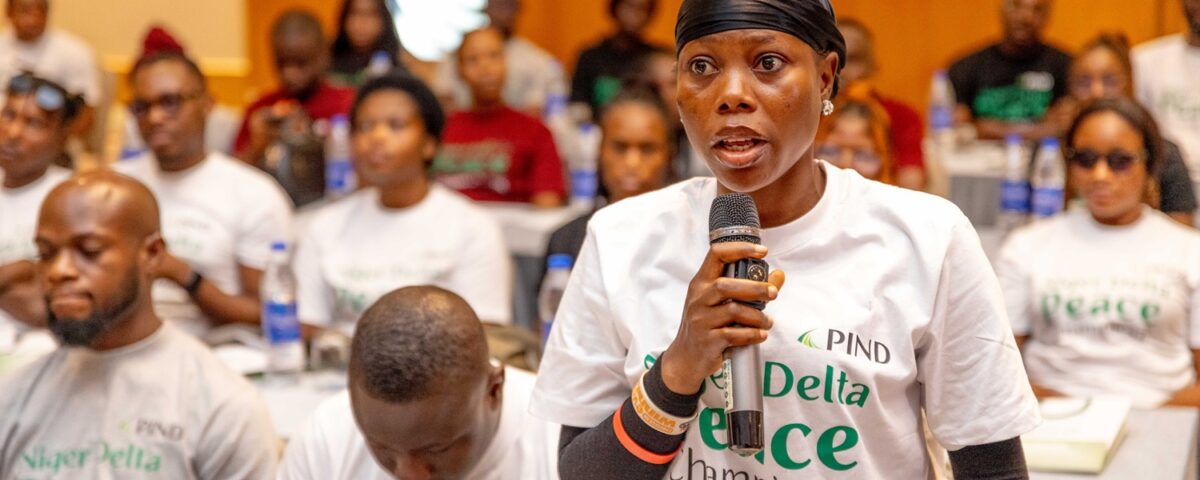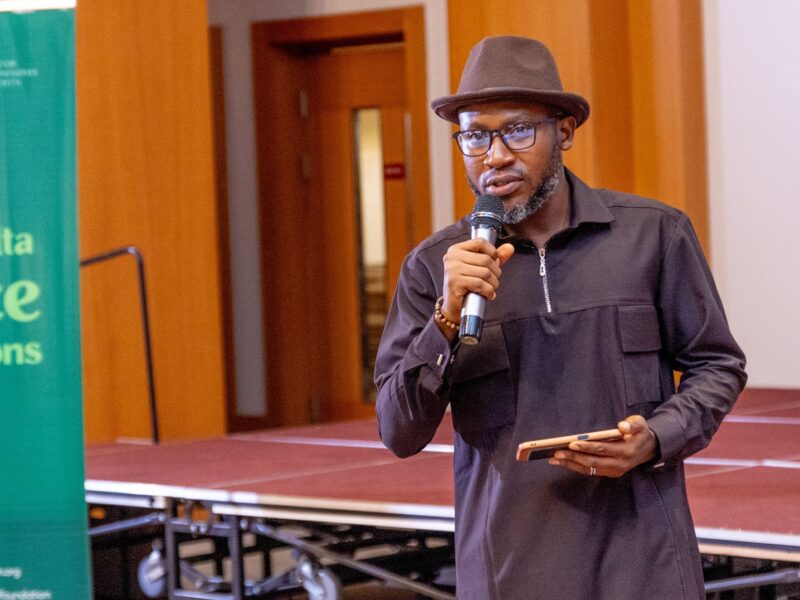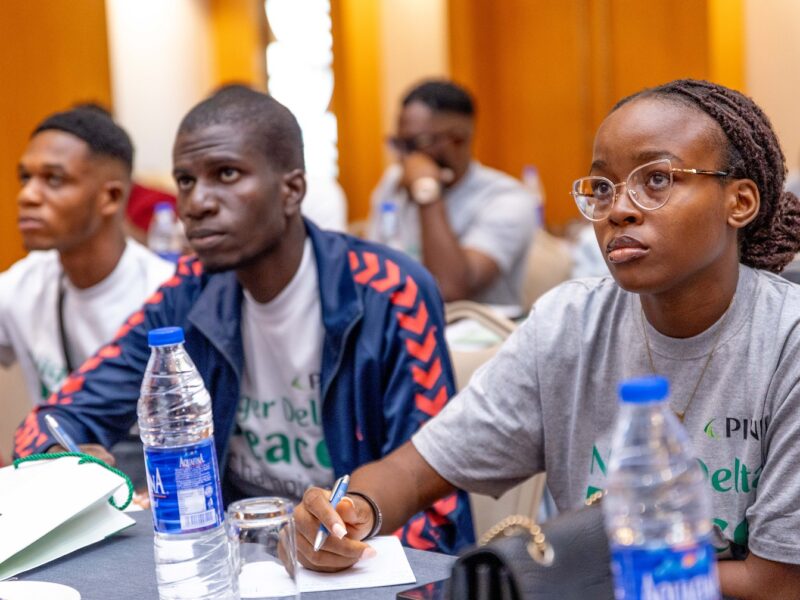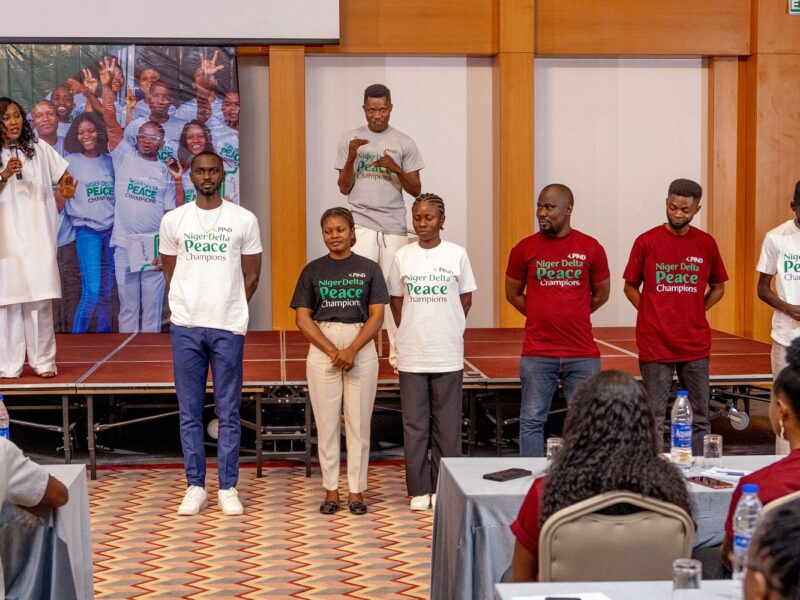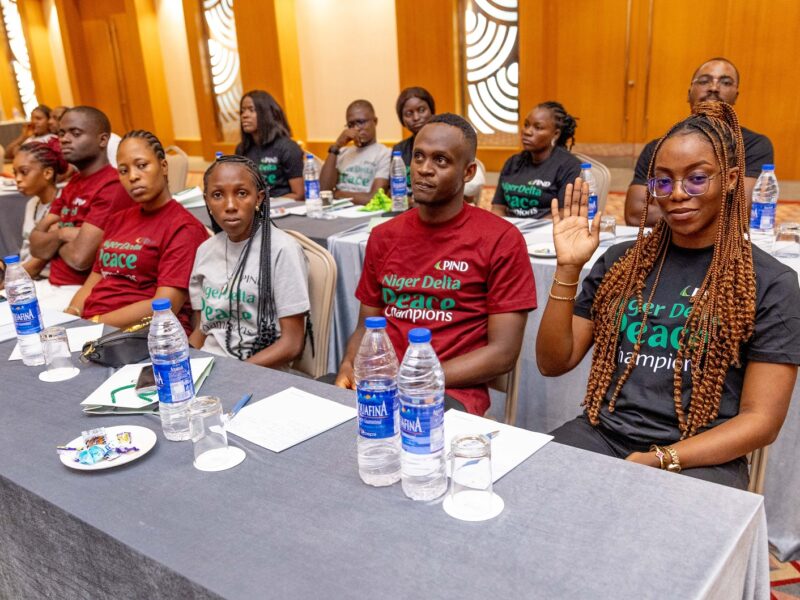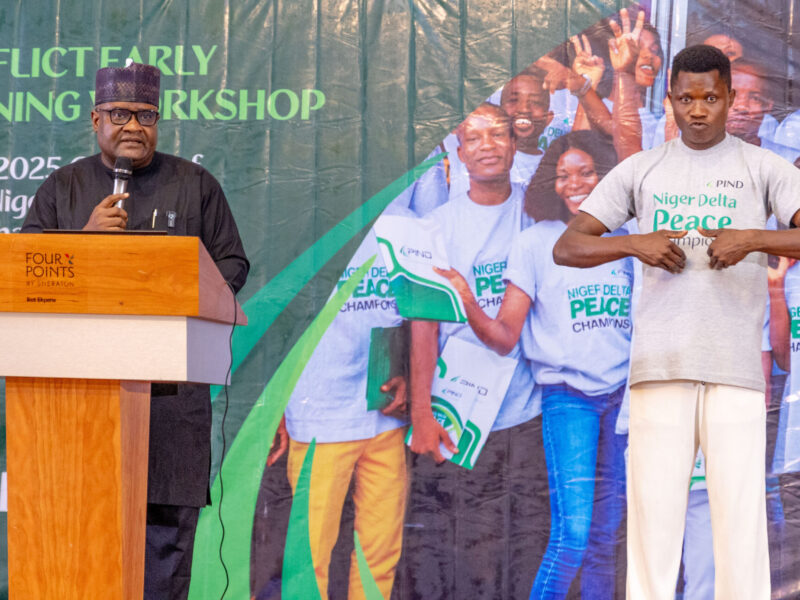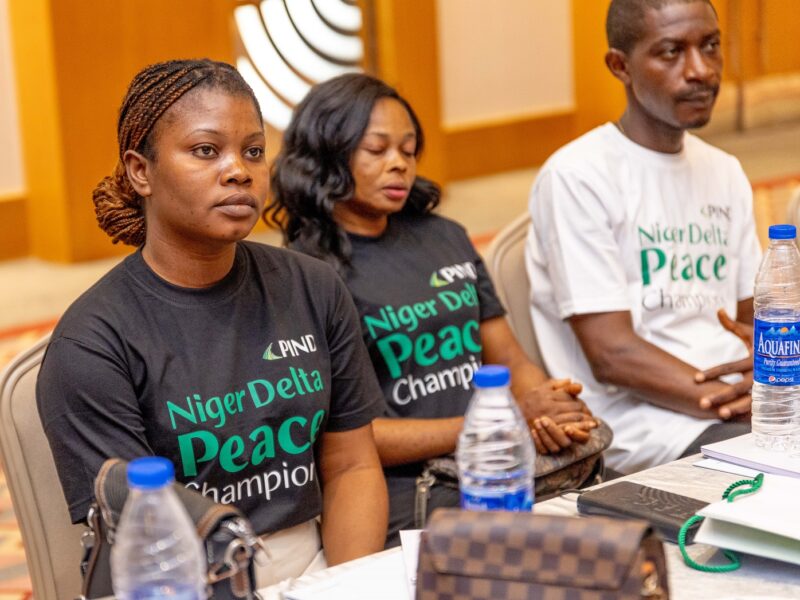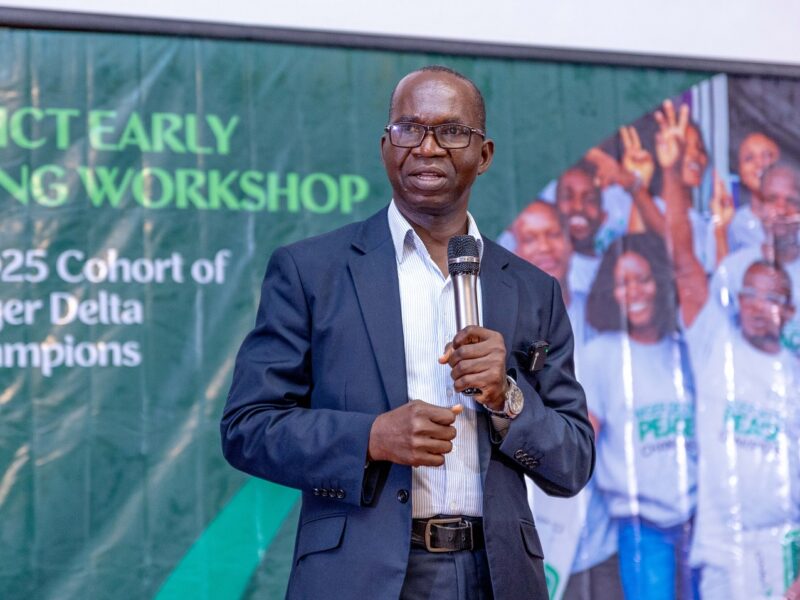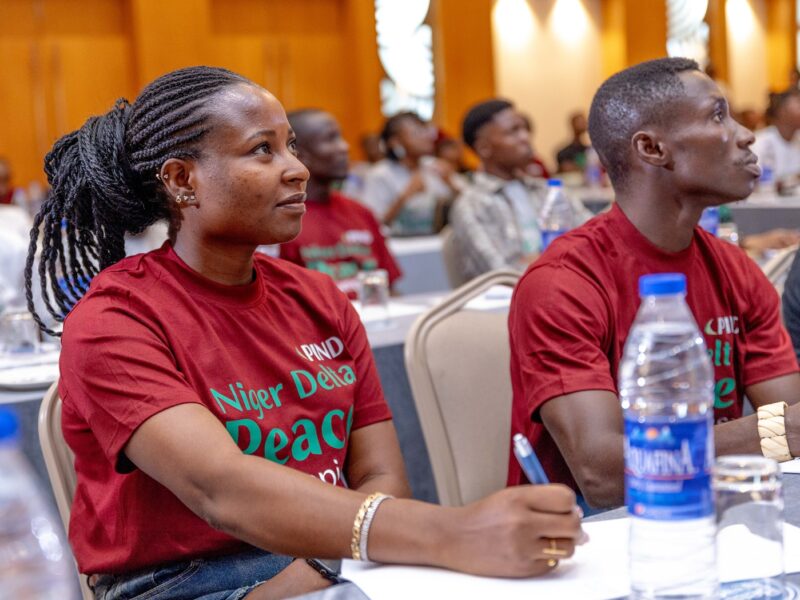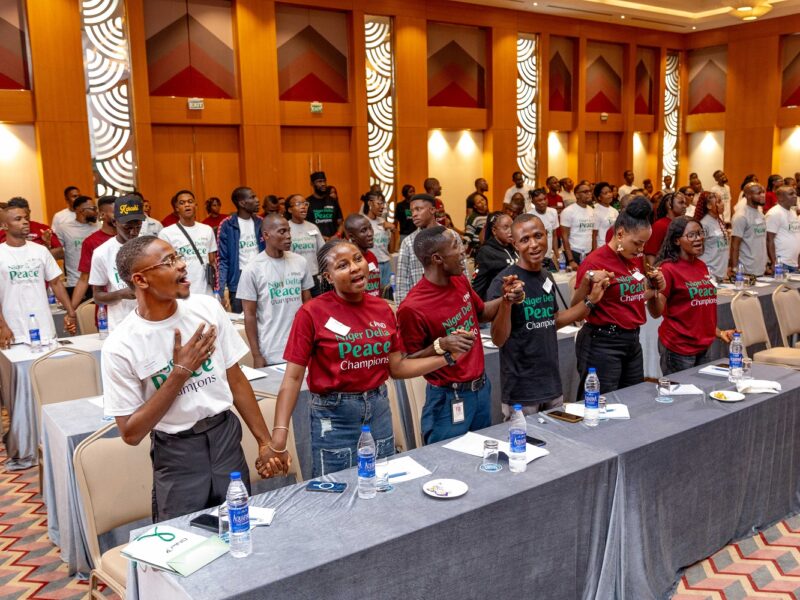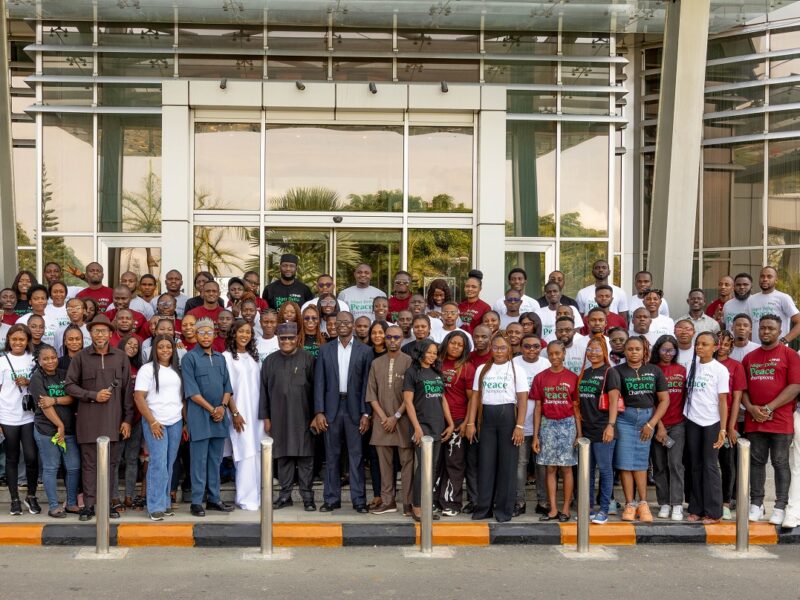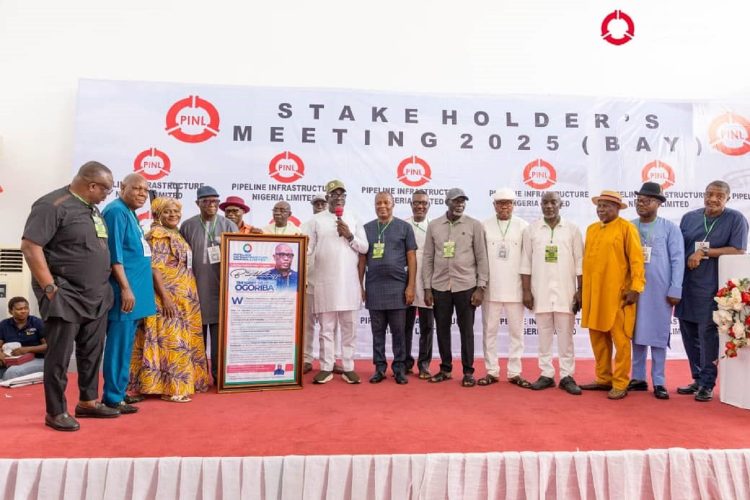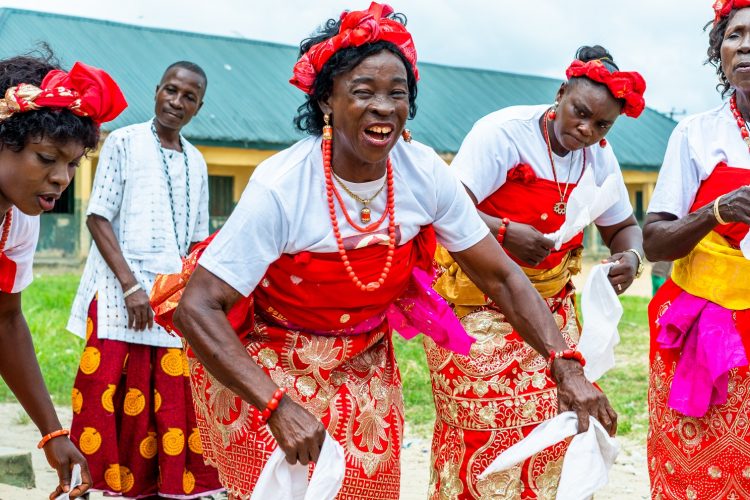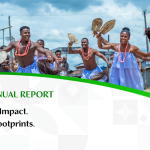
PIND Launches 2024 Annual Report: Legacies. Impact. Strides. Footprints.
June 12, 2025
PIND Roundtable Examines How Communal Conflict Undermines Agricultural Investment in the Niger Delta
June 17, 2025Imagine a region where young people are not just responding to conflict but preventing it. That is the vision taking shape in the Niger Delta as youth take on a crucial role in sustaining peace across communities.
On May 22–23, 2025, 90 young people from all nine states in the Niger Delta gathered in Ikot Ekpene, Akwa Ibom State, for more than just another workshop. They were officially inaugurated as Peace Champions under a youth-focused peacebuilding initiative by the Foundation for Partnership Initiatives in the Niger Delta (PIND).
Now in its fourth year, this growing network of Peace Champions reflects a simple and powerful idea: when local communities lead, conflict becomes easier to manage and easier to prevent.
So, Who Are These Peace Champions?
These young peacebuilders come from diverse backgrounds, including students, community organizers, women, persons with disabilities, and representatives from key HCDT communities such as Warri Kingdom, Ogulagha-Ibe, Egbema, and Ugboland. Their participation also supports Chevron Nigeria Limited’s broader goal of strengthening stability around oil and gas operations.
They all share a commitment to keeping their communities safe and secure to allow economic development to thrive.
They are now equipped to monitor and report early signs of violence, including cult clashes, intercommunal tensions, election-related threats, and other risks through PIND’s tech-enabled Early Warning and Early Response (EWER) system.
Why Does This Matter Right Now?
The Niger Delta, although rich in culture and resources, continues to face conflict risks that threaten lives and livelihoods. From oil-producing hubs to rural towns, tensions can arise quickly and often without prior warning. PIND’s peacebuilding model focuses on one critical principle: early detection enables better prevention. Youth-led monitoring plays a vital role in achieving this goal.
Speaking at the event, Dr. Effiong Essien, Acting Executive Director at PIND, emphasized the value of youth-led solutions. “The Niger Delta cannot achieve sustainable development without peace,” he noted. “We proudly welcome 90 young peacebuilders who are stepping up to bridge divides and heal communities.”
PIND’s Peacebuilding Manager, David Udofia, echoed this sentiment, stressing that the role of the Peace Champions goes beyond training. “You are not just participants. You are frontline peace actors. Your continued vigilance and reporting are essential to a more stable and resilient Niger Delta.”
During the training, participants learned how to identify warning signs, document incidents, and report them using mobile tools. Some of these tools are equipped with speech-to-text features to support areas with low literacy or limited connectivity.
The Tech Edge: Turning Alerts into Action
Each report submitted by these youth feeds into PIND’s Peace Map, a centralized system managed by PIND’s Integrated Peace and Development Unit (IPDU). This is where things get smart.
Once verified, the reports are mapped and analyzed for trends such as rising tensions ahead of elections or recurring clashes between communities. These insights are then used to inform peace actors: traditional rulers, community leaders, NGOs, and local government security agencies. In short, it’s a homegrown intelligence network, powered by community actors, backed with technology, and designed to act fast
What Comes Next?
Being inaugurated is only the beginning. These 90 Champions now join an active network where they will receive mentorship, technical support, and opportunities to participate in broader community interventions.
Their impact will be measured not only through data but also through stories of resolved disputes, prevented violence, and improved safety across the region.
They now have a voice in conversations that affect their future, something that has been lacking for far too long.
A Bigger Picture for Peace in the Region
Through this initiative, PIND is not just responding to conflict but reimagining peacebuilding in the Niger Delta as proactive, community-driven, and supported by technology.
As more young people are empowered and more communities adopt early warning systems, the goal becomes clear: make peace a locally owned and sustained practice rather than a reactive response to crisis.
This model can be scaled, replicated, and refined. If it continues to grow, it may set a new benchmark for how communities in the Niger Delta, across Nigeria, and beyond prevent conflict before it escalates.
To learn more about PIND’s peacebuilding initiatives, visit their website: https://pindfoundation.org/
